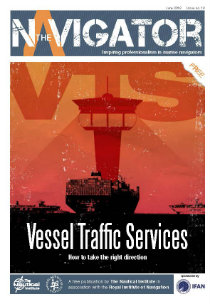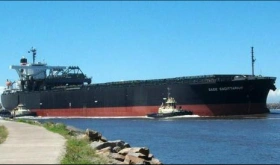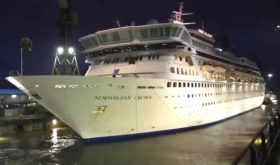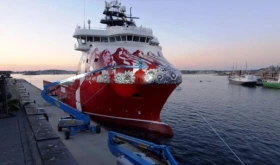The ILO has received the 30th ratification of the Maritime Labour Convention, 2006 (MLC, 2006) fulfilling the last condition for the first global standard that spans continents and oceans to go into effect in a year’s time.
“This is great news for the world’s more than 1.2 million seafarers,” said ILO Director General Juan Somavia. “It was a dream of the ILO as early as 1920, and I pay tribute to the international maritime community for having made it a reality.”
The MLC, 2006 was adopted unanimously in 2006 but there were two requirements still to be met before it could come into force. The ratification by Russia and the Philippines fulfills the requirement that at least 30 ILO member countries ratify the Convention. The other requirement – that ratifying countries represent 33 percent of the world’s gross shipping tonnage – was met in 2009.
The 30 countries represent nearly 60 percent of the shipping tonnage. This means that seafarers working on more than 50 per cent of the world’s international shipping will be covered by the new Convention. “This is a remarkable achievement,” Somavia said. “Not only are these first 30 ratifications drawn from almost every region of the world, but the tonnage level is nearly double the required amount.”
The MLC, 2006 establishes minimum requirements for almost all aspects of working conditions for seafarers including conditions of employment, hours of work and rest, accommodation, recreational facilities, food and catering, health protection, medical care, welfare and social security protection.
“Each State is tasked not only with ensuring that ships flying its flag meet the ‘decent work’ requirements set out in the Convention, but also with certifying that those ships comply with the requirements relating to labour conditions.” said Cleopatra Doumbia-Henry, Director of the ILO’s International Labour Standards Department.
This certification will also facilitate inspections of ships. The Convention places great reliance on the system allowing for inspections to be carried out by other countries, known as port State control. There is also a mechanism which records seafarers’ complaints, as well as a reporting mechanism which spots failures no matter where a ship travels.
“The maritime labour inspection and certification system is a big step forward by the ILO in taking concrete and specific action to address the very serious problems that arise because of international ownership of ships and the inability of some countries to ensure that their ships meet international standards for quality shipping,” Doumbia-Henry said. She added that the industry has been active in implementing the MLC ever since it was adopted and often well ahead of the legal process for national ratification.
The following countries have ratified MLC, 2006: Liberia, Marshall Islands, Bahamas, Panama, Norway, Bosnia and Herzegovina, Spain, Croatia, Bulgaria , Canada, Saint Vincent and the Grenadines, Switzerland, Benin, Singapore, Denmark, Antigua and Barbuda, Latvia, Luxembourg, Kiribati, Netherlands, Australia, St Kitts and Nevis, Tuvalu , Togo, Poland, Palau, Sweden, Cyprus, Russian Federation, Philippines.
When it comes into effect, the MLC, 2006 will replace 37 existing ILO maritime Conventions and related Recommendations adopted since 1920.
As the Convention applies to all ships, including those of non-ratifying Member States, it will be globally applicable and can be uniformly enforced.
Often described as a “Bill of Rights” for seafarers, the Convention also helps to achieve a “level-playing field” for quality shipowners, ensuring fair competition while marginalizing sub-standard ship operations.
The Convention promotes a strong enforcement regime to ensure that labour standards are enforced as effectively as the International Maritime Organization (IMO) conventions on ship safety, security and environmental protection (SOLAS/MARPOL) by both flag and port States.
Under the MLC, 2006, States must inspect all ships flying their flag and also issue those ships with a maritime labour certificate and a declaration of maritime labour compliance if ships are 500 gt or over and go on international voyages.
If a ship that has undergone a flag state inspection does not meet the requirements, the inspector reserves the right not to issue the certificate, can refuse to endorse it or, in especially serious cases, may even withdraw it.
The reasons for which a ship may be detained will also change once the MLC, 2006 comes into force. Nowadays detention is limited to safety-related matters. The MLC, 2006 however goes beyond this and also covers the social welfare of seafarers. That means an inspector will be able to detain a vessel or prevent it from going to sea if the social or labour rights of the crew are being violated, for example, if wages are not being paid or employment records are not in order.
Source: ILO














Leave a Comment